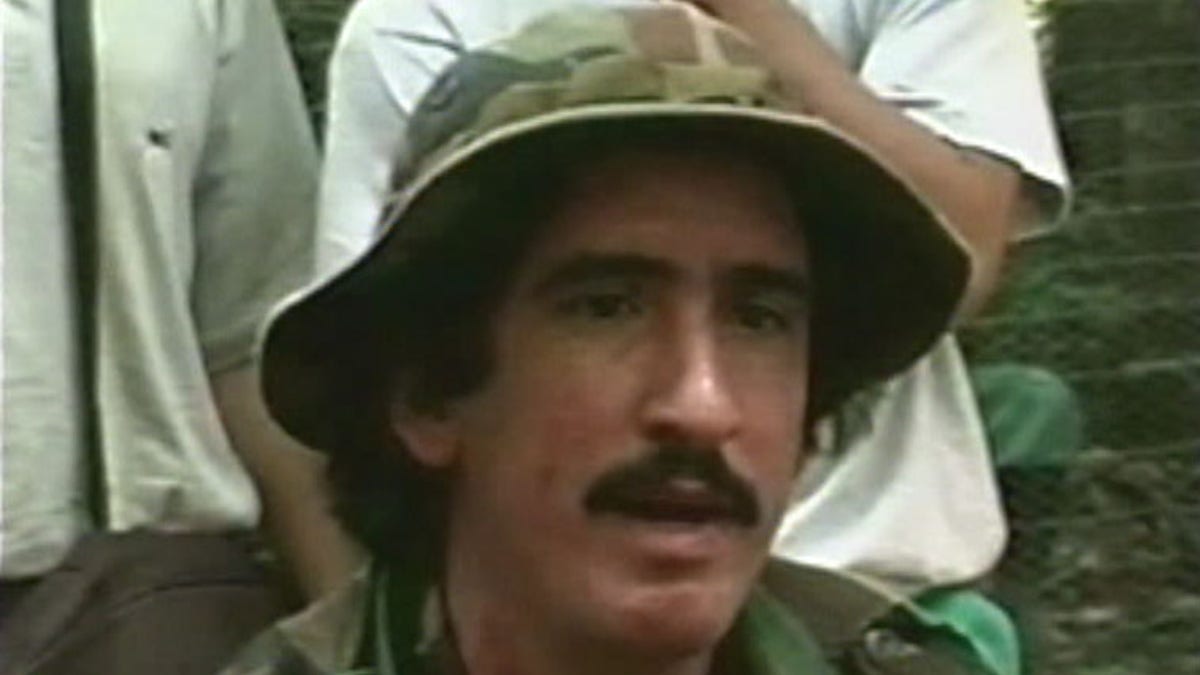
The top commander for the Colombian FARC rebels was captured across the border in a joint operation between both countries, Colombia President Juan Manuel Santos announced Wednesday.
Venezuela has for years been a refuge for Colombia's leftist insurgents and it was not clear whether the arrest of Guillermo Torres, better known by his alias "Julian Conrado," indicates that is changing.
Torres is the most senior Revolutionary Armed Forces of Colombia commander captured since 2004. He is on the FARC's general staff, No. 2 in the command chain after the rebels' seven-member secretariat, and is also renowned for composing and performing rebel anthems during failed 1999-2002 peace dialogues, accompanying himself by guitar.
The United States had offered a $2.5 million reward for his capture.
Venezuela's government said Torres was caught Monday in Barinas state, which is near the Colombian border. Santos said Venezuelan President Hugo Chávez had informed Colombia's government the 56-year-old Torres would be sent home.
With Torres capture, the FARC have been put on notice that the war against the insurgency "is going full-bore and from everywhere," Santos said.
Venezuela's interior ministry said in a brief statement that Interpol had issued a red notice for Torres in July 2002, alerting member nations to an outstanding Colombian arrest warrant
Colombia's chief anti-terrorism prosecutor, Hermes Ardila, said Torres faces charges of rebellion and other crimes.
Torres was close to Raul Reyes, the FARC foreign minister killed in a March 2008 Colombian military raid on a rebel camp across the border in Ecuador. Initial, erroneous reports at the time said Torres had also been killed.
Neither Colombian nor Venezuelan authorities indicated how long Torres was believed to have been in Venezuela.
Formerly strained relations with Venezuela have improved considerably since Santos took office last August and began testing Chávez's previous tolerance for FARC rebels on Venezuelan territory.
"Santos' strategy is working. There is greater pressure on the Chávez government ... and better cooperation" from Venezuela, said Ariel Avila, an analyst with the Arco Iris think tank in Bogota.
Chávez's cooperation may stem in part from Venezuelans' complaints about rising crime, to which FARC fighters in the country are perceived as contributing, Avila added.
In April, Chávez deported to Colombia an alleged top FARC guerrilla, Joaquin Perez, who was described by Santos as the rebels' most important operative in Europe. Santos had tipped off Chávez to Perez's arrival in Venezuela from Germany and Perez was arrested at Caracas' international airport.
Colombian officials have long complained about FARC commanders being allowed to shelter and get medical care in Venezuela, which helped broker the release of more than a dozen FARC-held Colombian hostages beginning in 2007.
Santos was at the time defense minister to his hard-line predecessor as Colombia's president, Alvaro Uribe.
In contrast with Uribe, Santos has opted against antagonism with Chávez and says the Venezuelan leader has promised not to support the armed struggle against Colombia's government.
Electronic documents found at Reyes' bombed camp indicate Chávez's regime helped the cocaine-financed FARC purchase weapons and even offered the insurgents an open-ended loan of about $300 million.
Chávez has denied providing material assistance to the FARC and called the documents fabrications.
Based on reporting by the Associated Press.
Follow us on twitter.com/foxnewslatino
Like us at facebook.com/foxnewslatino
